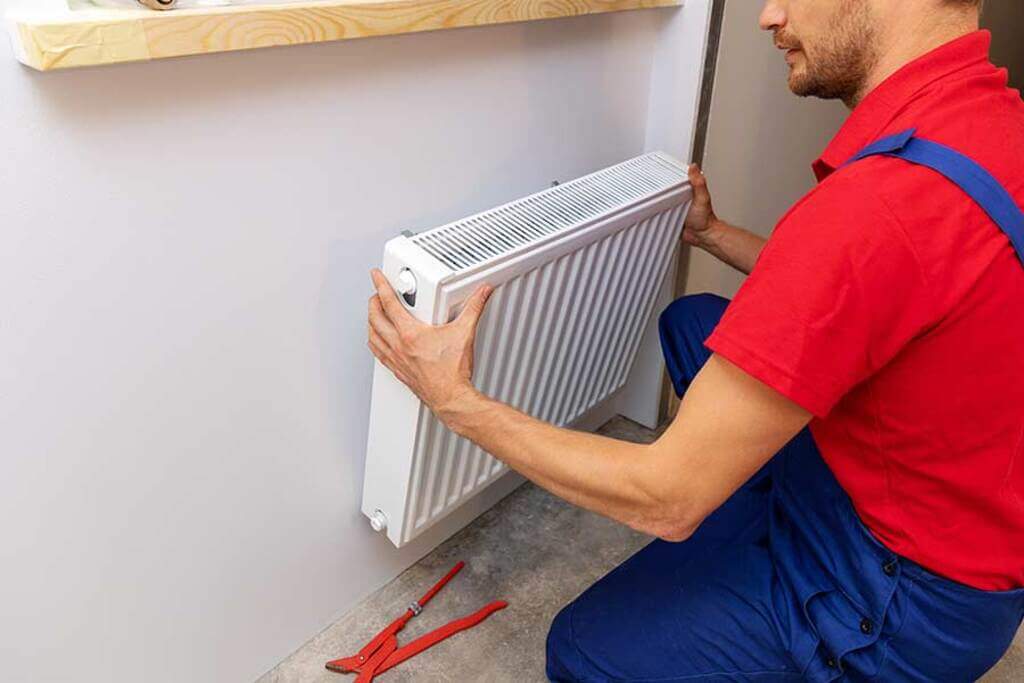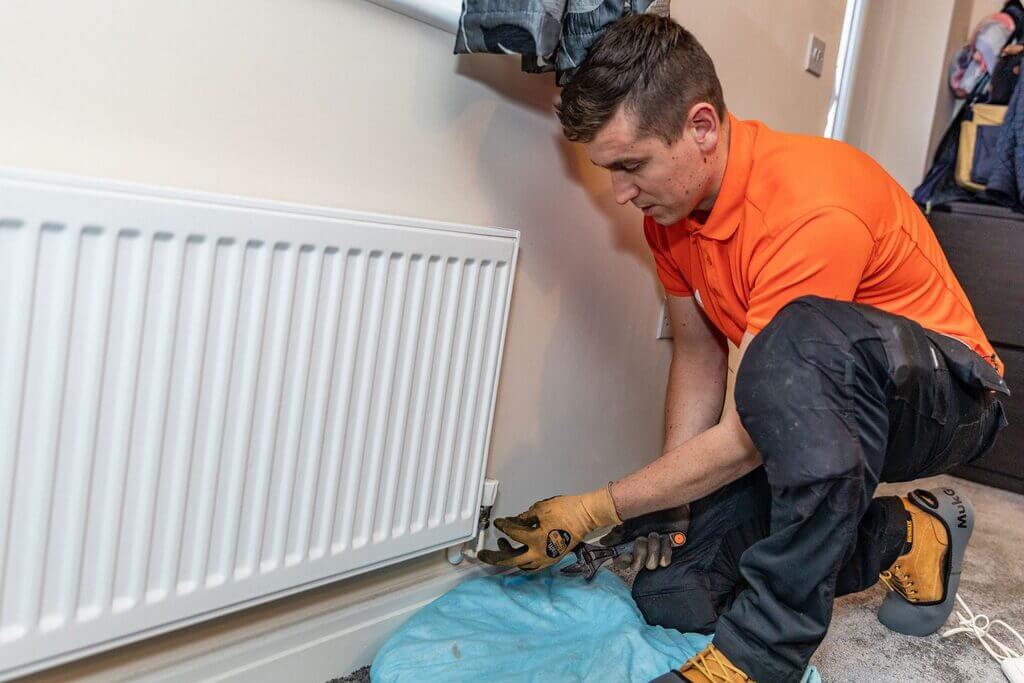If you notice your radiators are not heating properly it could be time for a power flush.
After years of use, central heating systems can become clogged with sludge, rust from pipes, and other debris. It builds up in the pipes and radiators, reducing the water flow. This build-up can cause cold spots on radiators, higher energy bills, and potentially your boiler to break down.
If certain rooms take a long time to heat up, if your radiators are cold at the bottom, or if your boiler is noisy it might be time to consider a power flush.
Power flushing is a way of cleaning the entire central heating system, including pipes, radiators, and the boiler using chemicals and pressurized water.
To clear out the dirty pipes, your plumber will use a high-pressure pump to pump a chemical cleaning solution through the pipes and radiators at high speed to loosen and remove any accumulated sludge, rust, or other debris that has accumulated in your heating system.
For older systems or those that haven’t been cleaned in a long time, you might need to flush the system several times until the pipes are clear.
How Does Power Flushing Work?

Done properly, power flushing requires professional knowledge of heating systems.
- Your engineer will isolate the water supply and connect the power flushing pump.
- After a few minutes of circulating clean water, the cleaning solution is added to the system and circulated at high velocity using the pump forcing out dirt and sludge. Your boiler engineer might also reverse the flow of water.
- Your system is also flushed with clean water to remove any remaining debris and cleaning solution.
- Finally, your system is treated with a corrosion inhibitor to protect against future build-up.
In a typical house, a power flush will take most of the day to complete. For commercial properties, it can take a couple of days.
When Should You Consider Power Flushing?

The sludge that builds up in pipes and heating systems is a mix of debris, limescale, and rust. There are a number of potential signs that could mean it has built up in the system:
- Cold spots on your radiators.
- Slow heating or one room that won’t heat.
- Noisy pipes or boiler.
- Dirty water when you bleed your radiators.
- A drop in water pressure.
Too much sludge and you risk having a system breakdown.
And if you’re installing a new boiler or replacing any parts of your central heating system, it’s a good idea to have it power flushed before you restart the system.
Can You Power Flush Your Central Heating System Yourself?

To be honest, it’s really not a good idea to power-flush a central heating system yourself unless you have the right knowledge and equipment. This is especially true if you have an old heating system.
Hire a professional who can be there in case anything goes wrong (for example if it’s a really old system and a pipe goes). Just search for a plumber near me and you’ll get a list of qualified professionals where you are.
An engineer has the right equipment and expertise to carry out the process safely and effectively. They will also be able to do the job according to your specific heating system for home.
How Often Should You Power Flush Your Central Heating System?

This depends on a range of factors, including the age and condition of your central heating system and the water quality in your area. Generally speaking, you should power flush your system every 5-10 years.
Obviously, if you notice any signs of reduced efficiency or system issues, you should consider power flushing sooner. And if you live in an area with hard water or other water quality issues, you may need to flush the system more often.
Regular maintenance helps to prevent the build-up of sludge and reduces the need for power flushing. This includes having your system serviced by an engineer on a regular basis.
Final Thoughts
Power flushing can help to improve the performance of your heating system, reduce energy bills and reduce expensive breakdowns or repairs. If you’re having any issues with your central heating system or it’s been several years since your last power flush, it’s worth considering having your system professionally flushed.
Continue reading:-

